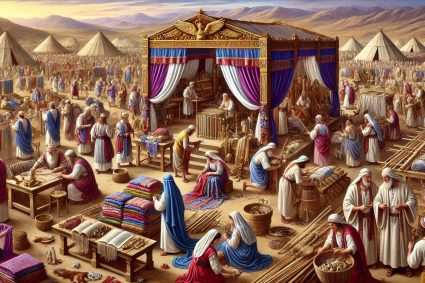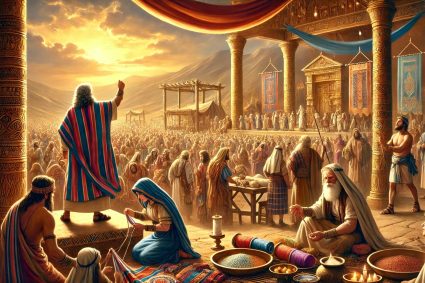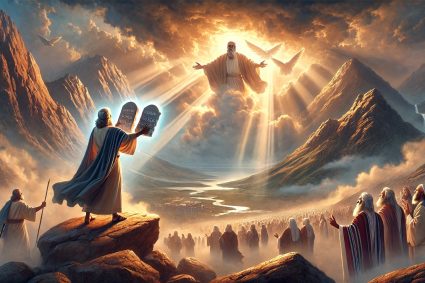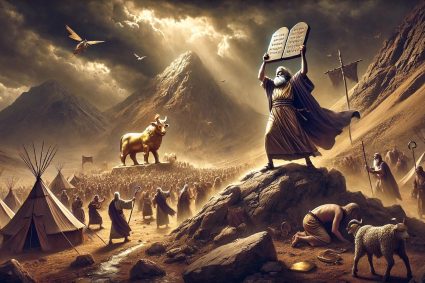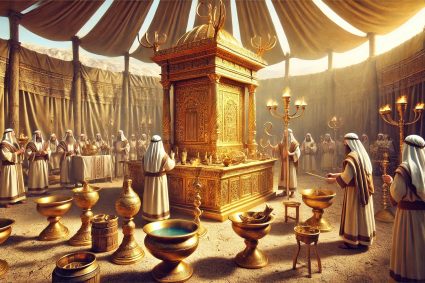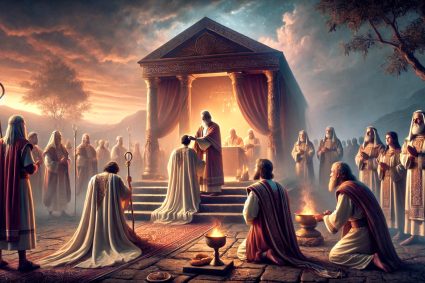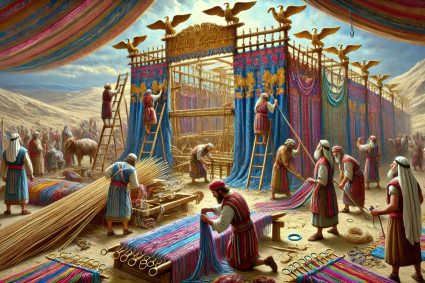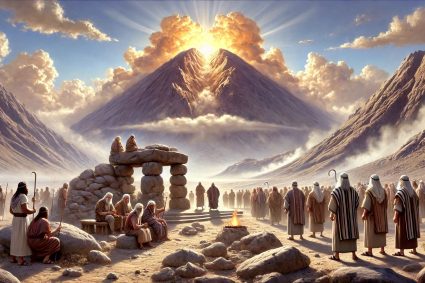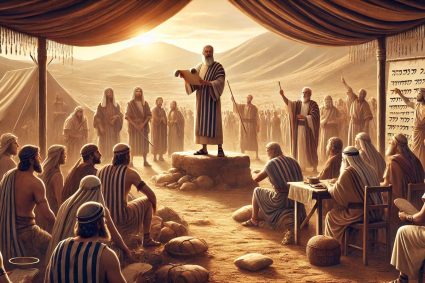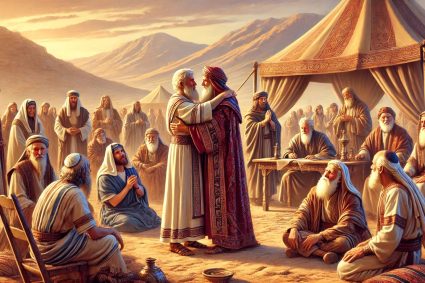
October 23, 2024
DAILY BIBLE READING – John Chapter 17
1 These words spake Jesus, and lifted up his eyes to heaven, and said, Father, the hour is come; glorify thy Son, that thy Son also may glorify thee:
2 As thou hast given him power over all flesh, that he should give eternal life to as many as thou hast given him.
3 And this is life eternal, that they might know thee the only true God, and Jesus Christ, whom thou hast sent.
4 I have glorified thee on the earth: I have finished the work which thou gavest me to do.
5 And now, O Father, glorify thou me with thine own self with the glory which I had with thee before the world was.
6 I have manifested thy name unto the men which thou gavest me out of the world: thine they were, and thou gavest them me; and they have kept thy word.
7 Now they have known that all things whatsoever thou hast given me are of thee.
8 For I have given unto them the words which thou gavest me; and they have received them, and have known surely that I came out from thee, and they have believed that thou didst send me.
9 I pray for them: I pray not for the world, but for them which thou hast given me; for they are thine.
10 And all mine are thine, and thine are mine; and I am glorified in them.
11 And now I am no more in the world, but these are in the world, and I come to thee. Holy Father, keep through thine own name those whom thou hast given me, that they may be one, as we are.
12 While I was with them in the world, I kept them in thy name: those that thou gavest me I have kept, and none of them is lost, but the son of perdition; that the scripture might be fulfilled.
13 And now come I to thee; and these things I speak in the world, that they might have my joy fulfilled in themselves.
14 I have given them thy word; and the world hath hated them, because they are not of the world, even as I am not of the world.
15 I pray not that thou shouldest take them out of the world, but that thou shouldest keep them from the evil.
16 They are not of the world, even as I am not of the world.
17 Sanctify them through thy truth: thy word is truth.
18 As thou hast sent me into the world, even so have I also sent them into the world.
19 And for their sakes I sanctify myself, that they also might be sanctified through the truth.
20 Neither pray I for these alone, but for them also which shall believe on me through their word;
21 That they all may be one; as thou, Father, art in me, and I in thee, that they also may be one in us: that the world may believe that thou hast sent me.
22 And the glory which thou gavest me I have given them; that they may be one, even as we are one:
23 I in them, and thou in me, that they may be made perfect in one; and that the world may know that thou hast sent me, and hast loved them, as thou hast loved me.
24 Father, I will that they also, whom thou hast given me, be with me where I am; that they may behold my glory, which thou hast given me: for thou lovedst me before the foundation of the world.
25 O righteous Father, the world hath not known thee: but I have known thee, and these have known that thou hast sent me.
26 And I have declared unto them thy name, and will declare it: that the love wherewith thou hast loved me may be in them, and I in them.
King James Version. Public Domain
Commentary
Introduction
John Chapter 17, known as the High Priestly Prayer of Jesus, serves as a central conclusion to the Gospel of John and marks the transition from Jesus’ public ministry to His impending suffering, death, and resurrection. In this prayer, Jesus speaks immediately before His arrest and crucifixion, revealing His intimate relationship with the Father, His concern for the disciples, and future believers. This chapter offers deep insights into Jesus’ mission, His unity with the Father, and His plea for protection, sanctification, and unity for His followers.
Commentary
Verses 1-5: Jesus’ Request for Revelation and Completion of His Work
Jesus begins His prayer by asking the Father to glorify Him, just as the Father has glorified Him. This refers to the upcoming events of His suffering and resurrection, which will complete His redemptive work. Jesus emphasizes His authority to grant eternal life and defines eternal life as knowing the only true God and Jesus Christ. He acknowledges that His time on earth is finished and asks the Father to glorify Him with the glory He had before the world began.
Verses 6-16: Intercession for the Disciples
Jesus now prays for His immediate disciples. He acknowledges that they have been given out of the world and are under the protection and preservation of the Father. Jesus emphasizes the special relationship between the Father and the disciples and asks for their sanctification in the truth, which is God’s word. He desires that the disciples be strengthened in their faith and kept from evil without taking them out of the world, as they do not belong to the world.
Verses 17-19: Sanctification Through the Truth
Jesus calls for the sanctification of His disciples through the truth, which is rooted in God’s word. He explains that just as the Father sent Him into the world, He is likewise sending the disciples into the world. This sending is a continuation of His own ministry and a sign of the unity between the Father and the Son.
Verses 20-23: Prayer for Future Believers and Unity
Jesus expands His prayer to include all who will believe in Him through the disciples. His desire is that all believers may be one, just as the Father and the Son are one. This unity is meant to be a testimony to the world and to strengthen the belief in Jesus’ mission. Jesus emphasizes that this unity is based on the shared glory that the Father has given Him.
Verses 24-26: Conclusion of the Prayer
In the concluding part of His prayer, Jesus asks the Father that those who believe in Him may also see His glory. He underscores the Father’s eternal love for Him, which existed before the creation of the world. Jesus acknowledges that the Father does not know the world, but He Himself knows the Father and makes the Father’s name known to the believers. This revelation is intended to strengthen the love between the Father and the believers.
Summary
John Chapter 17 presents Jesus’ profound prayer to the Father shortly before His Passion. In this High Priestly Prayer, Jesus shares His desires and requests for Himself, His disciples, and all future believers. He asks for glorification through the completion of His redemptive work, for the protection and sanctification of the disciples in the truth, and for unity among believers that reflects the unity between the Father and the Son. This chapter emphasizes Jesus’ close relationship with the Father, His care for His followers, and the central role of truth and unity in the lives of believers. Overall, John 17 highlights the deep love and sacrifice of Jesus for humanity and His vision of a united and holy community of believers.
![]()

WEEKLY SPIRIT OF PROPHECY READING – Ellen White | The Desire of Ages
Chapter 72—“In Remembrance of Me”
This chapter is based on Matthew 26:20-29; Mark 14:17-25; Luke 22:14-23; John 13:18-30.
Read online here
Commentary
Introduction
Chapter 72 deals with one of the most central moments in the life of Jesus and Christian theology: the institution of the Lord’s Supper, which Jesus celebrated with His disciples during the Passover festival. This moment, described in the Gospels of Matthew, Mark, Luke, and John, marks the transition from the Jewish tradition of Passover to a new covenant, symbolized by the bread and wine that Jesus referred to as His body and blood. This act points both to His impending sacrifice on the cross and to the hope of Christ’s return. This chapter describes the profound significance of the Lord’s Supper, the despair of the disciples in the face of the impending betrayal, and the symbolic power of the promise of redemption.
Commentary
In this chapter, Jesus institutes the Lord’s Supper, making it a central rite for His followers. During the Last Passover meal, which traditionally commemorates the liberation of Israel from Egyptian bondage, Jesus gives the meal a new meaning. He takes the bread and the wine and declares that these elements represent His body and His blood, which are given for the sins of the world. Thus, the Passover, which was a symbol of the Jews’ liberation from physical slavery, is transformed into the Lord’s Supper, which signifies the liberation of humanity from the bondage of sin through Jesus’ death.
The institution of the Lord’s Supper marks the beginning of the “New Covenant,” which is sealed by Jesus’ death and resurrection. This new order replaces the old Jewish law and the ritual sacrifices. Instead, Jesus’ sacrifice and the remembrance thereof take center stage in the believers’ faith life. The chapter makes it clear that the Lord’s Supper is not merely a symbolic act but a means of spiritual strengthening that fosters community with Christ and among the believers themselves.
Judas’ behavior, as he focuses on his betrayal amidst this sacred act, highlights the stark contrast between Jesus’ gracious offer and human sin. Jesus is aware of Judas’ betrayal but continually gives him opportunities to repent, underscoring Jesus’ infinite patience and mercy. Despite the darkness surrounding Judas, the invitation to grace remains open until the last moment.
Another central point in this chapter is the emphasis on spiritual preparation and self-examination before partaking in the Lord’s Supper. Believers are called to participate at the Lord’s table in holiness and reverence. No one is to be excluded from this celebration, but it is necessary for each individual to examine their own heart before partaking in the Lord’s Supper.
Summary
Chapter 72 of the book The Life of Jesus offers a deep reflection on the institution of the Lord’s Supper by Jesus during the Passover festival. Jesus uses this opportunity to explain the bread and wine as symbols of His impending death, which will free humanity from sin. This new celebration replaces the traditional Jewish Passover and marks the beginning of the New Covenant, established through Christ’s sacrifice. The act in which Judas plans to betray Jesus demonstrates the serious consequences of sin and betrayal. At the same time, Jesus demonstrates God’s profound mercy through His patience and offer of grace. The chapter highlights the significance of the Lord’s Supper as a source of spiritual strength and community with Christ and among believers, and emphasizes the necessity of self-examination and preparation before participation. It reminds believers to live in anticipation of Jesus’ return, which is proclaimed in every celebration of the Lord’s Supper.
(Visited 15 times, 1 visits today)

